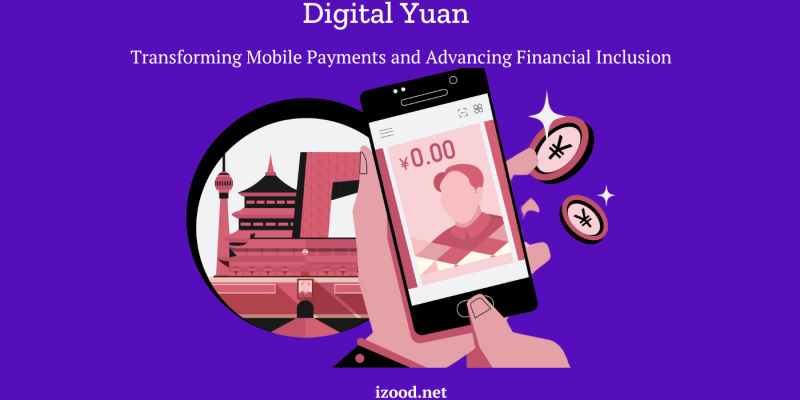
In the era of digital transformation, the rise of mobile bills has revolutionized the way we transact, providing comfort, velocity, and accessibility. China’s Digital Yuan, or e-CNY, stands at the leading edge of this evolution, promising to reshape the landscape of mobile payments and boost monetary inclusion. As governments and companies internationally search for innovative solutions to improve monetary accessibility and performance, exploring the capacity of the digital yuan becomes increasingly applicable, similar to this website Yuan Fortune.
The Rise of Mobile Payments
Mobile payments have surged in reputation during the last decade, pushed by advancements in generation, converting customer options, and the ubiquity of smartphones. In China, cell price structures, which include Alipay and WeChat Pay, have turned out to be essential components of daily life, enabling customers to make transactions seamlessly, from paying payments to ordering groceries and hailing rides.
The convenience and accessibility of cell phones have changed the way humans manipulate their budgets, lowering their reliance on cash and traditional banking services.
Introducing the Digital Yuan
Against this backdrop, the introduction of the Digital Yuan represents a substantial milestone in the evolution of cell payments. As a critical financial institution virtual currency (CBDC) issued and controlled via the People’s Bank of China (PBOC), the Digital Yuan combines the benefit of cell bills with the steadiness and safety of a centrally subsidized foreign currency.
Unlike cryptocurrencies consisting of Bitcoin, which perform on decentralized networks, the Digital Yuan is centrally controlled, offering greater oversight and regulatory compliance.
Driving financial inclusion
One of the primary goals of the Digital Yuan is to promote financial inclusion by offering access to digital monetary offerings for all segments of society. In China, where tens of millions of humans lack access to conventional banking offerings, the Digital Yuan has the capacity to bridge the gap by presenting a stable and handy approach to conducting financial transactions.
Empowering small businesses
In addition to individuals, small corporations stand to substantially benefit from the adoption of the digital yuan. By accepting digital payments, traders can increase their purchaser base, streamline transactions, and decrease the dangers associated with dealing with coins.
Moreover, the Digital Yuan enables extra transparency and performance in delivery chains, enabling organizations to streamline transactions, control inventory, and optimize operations. This stronger visibility fosters consideration among stakeholders and promotes fairer enterprise practices, specifically for small and medium-sized organizations (SMEs) running in aggressive markets.
Enhancing cross-border transactions
Beyond domestic transactions, the Digital Yuan has the capability to streamline cross-border payments and exchange, establishing new opportunities for worldwide trade. As China seeks to internationalize its currency and amplify its influence in worldwide financial markets, the digital yuan ought to serve as a possible alternative to conventional charge structures such as SWIFT.
By leveraging the blockchain era, the Digital Yuan allows faster, extra-price-effective cross-border transactions, decreasing reliance on intermediaries and mitigating the risks associated with foreign currency conversion and agreement.
Overcoming challenges and concerns
While the Digital Yuan holds a giant promise for cell payments and economic inclusion, its enormous adoption additionally raises several demanding situations and worries that should be addressed.
Regulatory Compliance
Regulators have to establish clear recommendations and requirements for using the Digital Yuan to ensure compliance with anti-money laundering (AML) and realize-your-purchaser (KYC) guidelines. This includes enforcing strong identification verification measures and monitoring transactions to prevent illicit sports.
Privacy and security
The centralized nature of the Digital Yuan raises worries about privacy and information security. Governments ought to implement stringent record-keeping safety measures to safeguard individuals’ non-public data and prevent unauthorized access to virtual wallets. Additionally, efforts to combat cyber threats and ensure the integrity of the virtual infrastructure assisting the Digital Yuan are critical to retaining trust in the gadget.
Technological Infrastructure
Ensuring extensive access to generation and connectivity is vital for the achievement of the Digital Yuan. Governments need to deal with infrastructure gaps and invest in digital literacy schooling to ensure that all segments of society can fully benefit from cell bills and financial offerings.
Conclusion
The Digital Yuan represents the future of mobile bills, providing a secure, handy, and efficient method of accomplishing financial transactions. By promoting monetary inclusion, empowering small groups, and enhancing cross-border transactions, the Digital Yuan has the capability to power financial growth and prosperity on an international scale.
However, figuring out the full ability of the digital yuan calls for concerted efforts to cope with regulatory, privacy, and technological challenges. With collaboration among governments, agencies, and era vendors, the Digital Yuan can pave the way for an extra inclusive, resilient, and interconnected economic atmosphere. As the arena embraces the digital revolution, the Digital Yuan stands poised to lead the price in the direction of an inclusive and equitable future.







